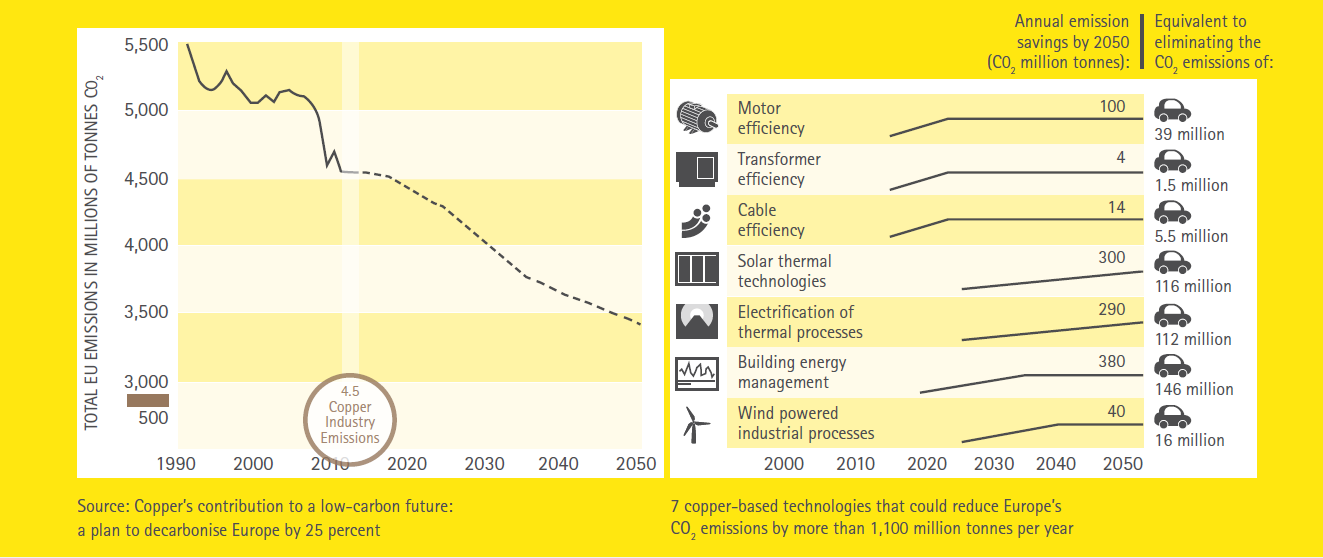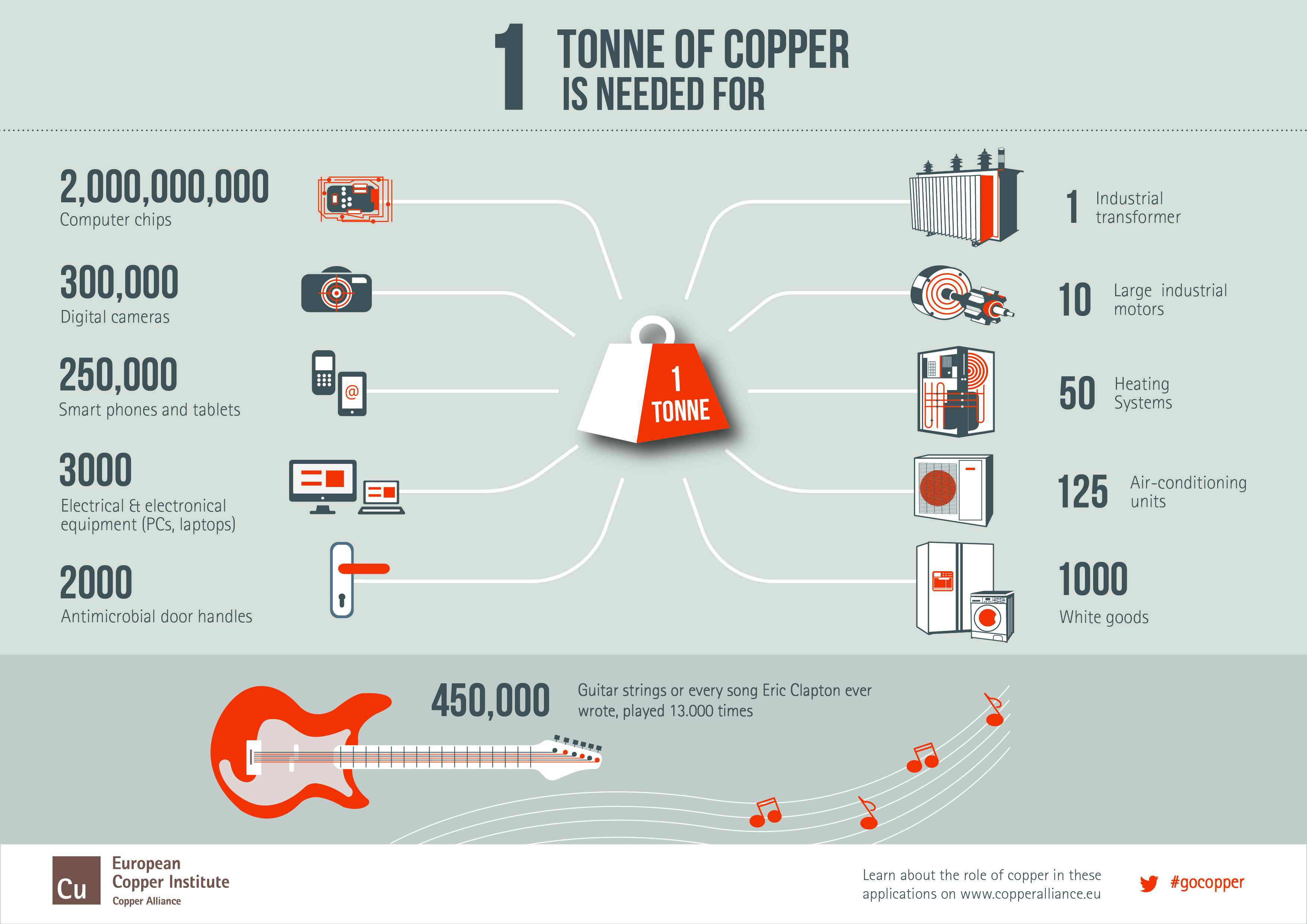What do energy efficient cables, solar panels and building energy management systems all have in common? They are all critical to reducing Europe’s CO2 emissions, and they all completely depend on copper.
For Europe to achieve its ambitious 2050 targets, Europe needs to use more copper and other metals. And for this, the EU Copper industry need the support of policymakers.
Copper is part of the solution
It’s not a pipe dream. By 2050, copper can reduce the European Union’s carbon emissions by 25 per cent. That’s more than 1,100 million tonnes per year, which is roughly equivalent to the CO2 from 436 million cars.

Copper in action
Check out all the amazing things that copper can do to improve our energy future. Due to its high conductivity of electricity and heat, copper dramatically improves the efficiency of our energy systems, power cables and electronics.
Some applications you won’t even have heard of. Take electric motors as an example. They account for 65% of all electricity consumed by EU industry. That’s a huge percentage. Switching to energy-efficient motors could save Europe nearly 80 million tonnes of CO2 a year.

So, what’s the problem?
If copper is so great, what’s the problem? Well, just like other metals, copper needs energy and emits CO2during its production. It’s a tough catch-22. Copper is helping to solve global warming, while simultaneously emitting greenhouse gas.
The copper industry has responded to this challenge Today, the industry has improved its energy efficiency in Europe by 60 per cent since 1990. Emissions from copper production in Europe are now very modest at 0.1 per cent of total EU emissions.
And copper products can now deliver 20-1500 times more CO2 savings than the emissions required to produce them.
Getting copper policy right
Reducing emissions further within the industry now requires much higher investments and policy support. Below are three common sense policies that would help to support Europe’s copper industry, along with other metals sectors.
- Competitiveness proofing of policies that might unilaterally affect the competitiveness of European companies
- Sustainable energy investments, potentially using Emissions Trading System revenues
- Stable and competitive energy pricing, to make sure EU electricity stays globally competitive
The European copper industry wants to unleash the full power and potential of this metal to combat climate change. That requires a long-term EU vision.
With the right investment, copper and other metals can help achieve the European Union’s decarbonisation goals, and make a real difference to our society and our world.